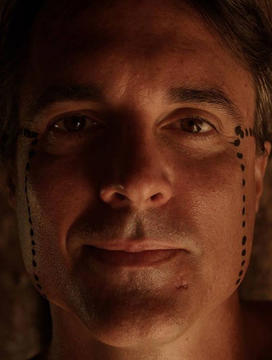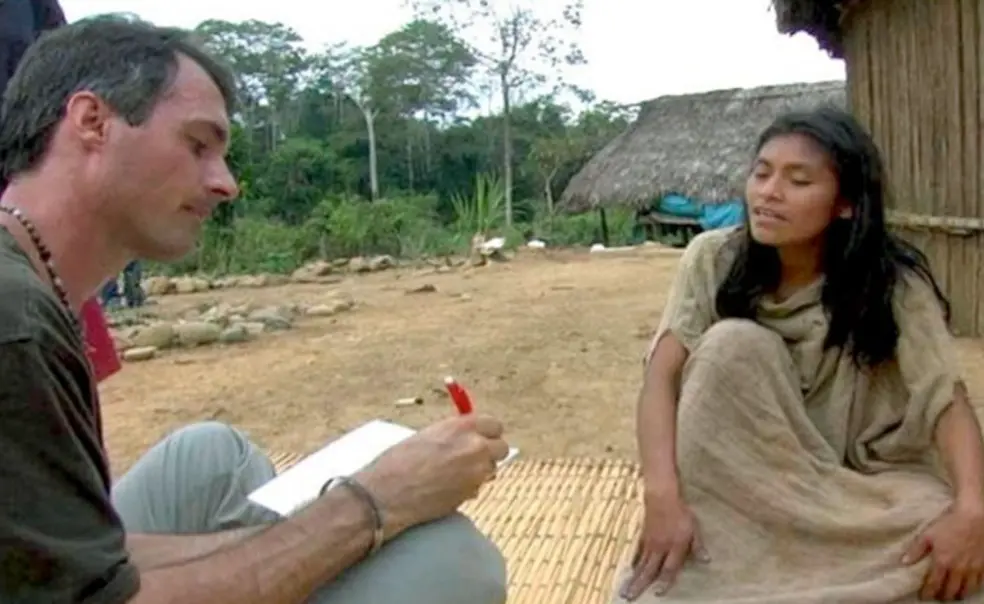Glenn Shepard ’87, Medical Anthropologist, Ethnobotanist, and Field Researcher
Glenn H. Shepard Jr. ’87 has a lush and noisy backyard: Toucans squawk, parrots chatter, monkeys howl. He lives in the middle of the jungle. Settled in Belém, at the mouth of the Amazon, Shepard works as a full-time researcher and ethnology curator at the Goeldi Museum in Belém do Pará, Brazil.

Some might say Shepard lives in paradise. Yet as an ethnobotanist — a researcher interested in how cultures use plants, especially as medicine — Shepard’s work focuses on illness, pain, and stress. Every culture, he says, has found ways to heal.
Shepard is a medical anthropologist who has dedicated himself to the Matsigenka, an indigenous people who live in Manú National Park, an isolated natural wonder deep within the Peruvian rain forest. This June, Shepard’s work was featured in National Geographic: “This Park in Peru Is Nature ‘in Its Full Glory’—With Hunters,” by Emma Harris.
“What I’m interested in is how different cultures understand health and address illness,” he says. “Rather than turning people into charts, what I’ve always tried to do is to put real people into my writing.”
Shepard has spent 30 years working and living among the Matsigenka. He is also fluent in the Matsigenka’s language.
“I try to make things really concrete, and to communicate something about their lives that’s human, rather than theoretical. That’s one way of respecting their stories,” he says.
“What I’m interested in is how different cultures understand health and address illness. Rather than turning people into charts, what I’ve always tried to do is to put real people into my writing.”
Glenn H. Shepard Jr. ’87
Shepard’s research focuses on indigenous medicine, including psychoactive compounds such as piri-piri and Ayahuasca that target spiritual ills. He studies how the Matsigenka and other cultures take a holistic approach to medicine.
“When we’re searching for medicines, are we searching for chemical components? Or are we searching for symbols?” he says. “All illnesses have a personal component — it’s psychological and cultural.”

Shepard began his journey towards medical anthropology at Princeton, where he devised his own independent concentration in ethnobiology. He originally planned on becoming a doctor. Yet he wasn’t the typical “pre-med student,” he says.
Shepard vividly remembers his first encounter with ancient medicine — it was an archaeology class at Princeton. “We read about trepanation,” he remembers. “They would open up a skull, and do surgery on the brain.” He began reading more about the ancient Peruvian cranial surgery. This led him to an interest in paleopathology.
“I loved looking at ancient skeletons — especially at what diseases they had, and whether they survived it,” he says.
With help from Peter Bogucki, former director of studies at Forbes College, Shepard traveled to eastern Jordan to conduct junior-paper research on folk medicine among the Rwala (Bedouin) tribes. Shepard also conducted field research for his senior thesis, and spent a semester among Matsigenka and Piro native communities in Madre de Dios, Peru.
After graduation, Shepard was awarded a Labouisse ’26 Prize fellowship to return to the Cocha Cashu biological station in Manú Park, to continue his field work among the Matsigenka. He also studied ethnographic film in Germany under a Fulbright Scholarship for one year. His field work is featured in the Emmy Award-winning documentary Spirits of the Rainforest.
Shepard earned a Ph.D. in medical anthropology from the University of California, Berkeley. During his Ph.D. studies, he conducted fieldwork among the Maya peoples of Chiapas in southern Mexico.
He is currently writing a book based on his fieldwork in the Peruvian Amazon, Sorcery and the Senses. For more info, visit Shepard’s blog: https://ethnoground.blogspot.com/.












No responses yet